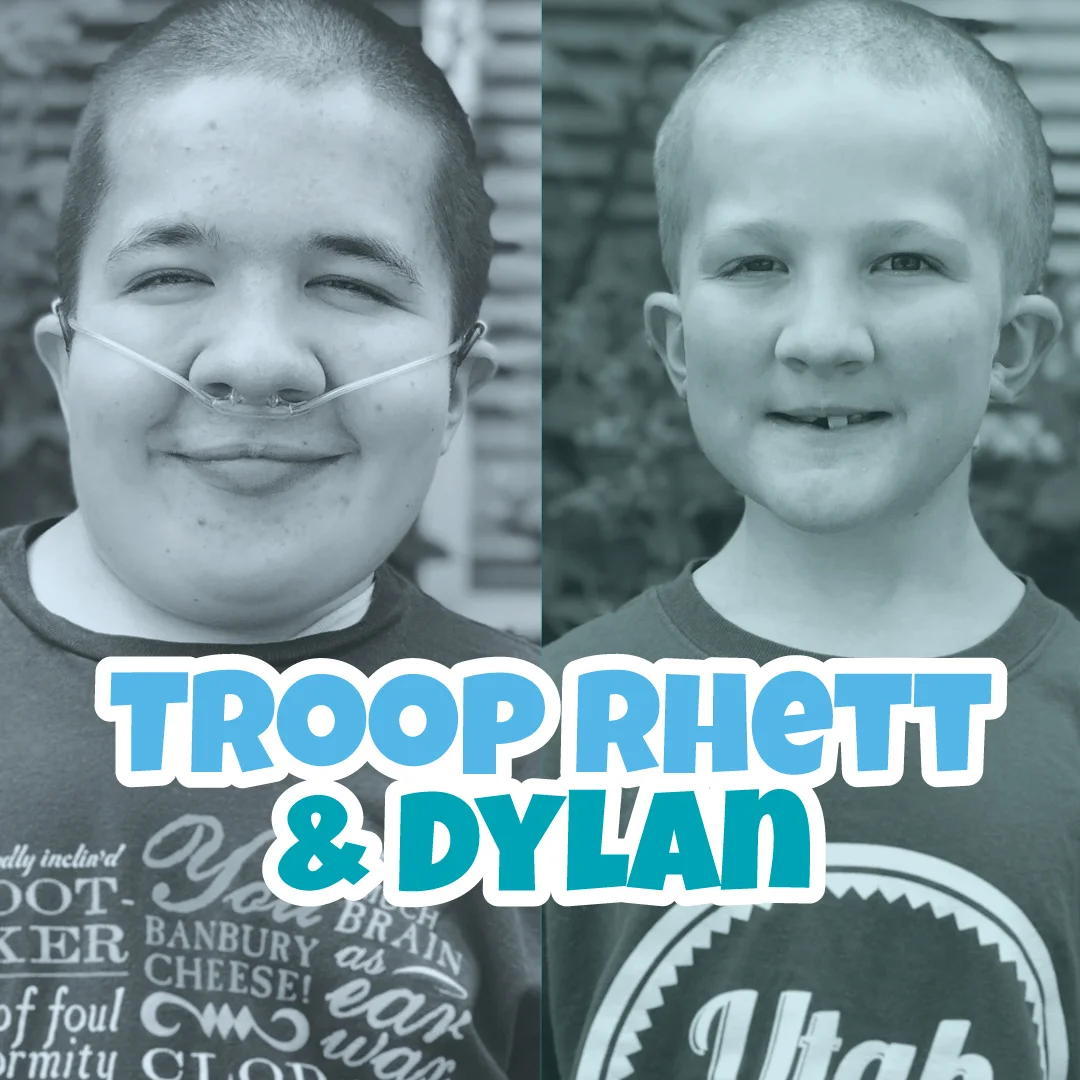Rhett & Dylan Carbine
Extraordinary Circumstance:
Short Rib Polydactyly Syndrome Type II (SRPS)
Book: Make Your Own Wings
Words by Diane Smith
Design & Illustration by Randall Smith
Photography by Alysha Smith
Fundraising by Peter Stevenson
Filming by Whitney Smith
Editing by Shirley Manning
Rhett and Dylan Carbine are brothers that share the same ultra-rare genetic disorder with several different life-altering abnormalities. They were diagnosed in 2018 with short rib polydactyly syndrome type II (SRPS). Due to the amount of things that this disorder impacts they see several different specialty doctors on a regular basis. They have two other siblings who do not have the same syndrome but also have special needs. These boys have been through so much in their lives but continue to have a positive outlook on life. They love helping people and spreading love to others through thoughts and deeds. They both love playing video games, reading, and spending time with friends and family. Dylan is known for his hugs, and Rhett is known for his thoughtfulness of others. They are an example to others to help love and support everyone.
Read their book.
Copyright © 2020 by Dallas Graham. All rights reserved. No part of this book may be reproduced in any form by any electronic or mechanical means, including photocopying, recording, or information storage and retrieval without permission in writing from the copyright holder.
learn more about
Short Rib Polydactyly Syndrome Type II (SRPS)
Short rib polydactyly syndrome type II (SRPS), also known as Majewski’s polydactyly syndrome, is a condition that causes differences in bones and cartilage. Unfortunately, very little is known about this syndrome. This is a genetic disorder and it’s caused by mutations passed down from the parents.
SRPS II leads to many changes in the bones. These changes include a narrow chest, short fingers, fingers that are fused together, and short legs. Other symptoms include trouble breathing, certain facial features, problems with the kidney, heart and blood vessels. Most people that are born with SRPS II do not survive being born.
With so little research on this syndrome, there’s a lot that we still don’t know about it. We don’t know how often people are born with it (though it is believed to be extremely rare), what mutation causes it, or how best to treat it. There is an urgent need for treatments for SRPS II so that people born with it can survive and live longer lives.
While there is not a lot of info available about SRPS II, some of these resources can help:
Endotext: www.ncbi.nlm.nih.gov/books/NBK279130
National Center for Advancing Translational Sciences: rarediseases.info.nih.gov/diseases/4833/short-rib-polydactyly-syndrome-majewski-type
RED FRED PROJECT WOULD LIKE TO THANK OUR FRIENDS AT PATIENT WORTHY FOR THEIR RESEARCH AND PARTICIPATION IN SHARING THIS VERY IMPORTANT INFORMATION, REGARDING THIS EXTRAORDINARY CIRCUMSTANCE. YOU CAN LEARN MORE ABOUT THEIR WORK AT PATIENTWORTHY.COM.




































